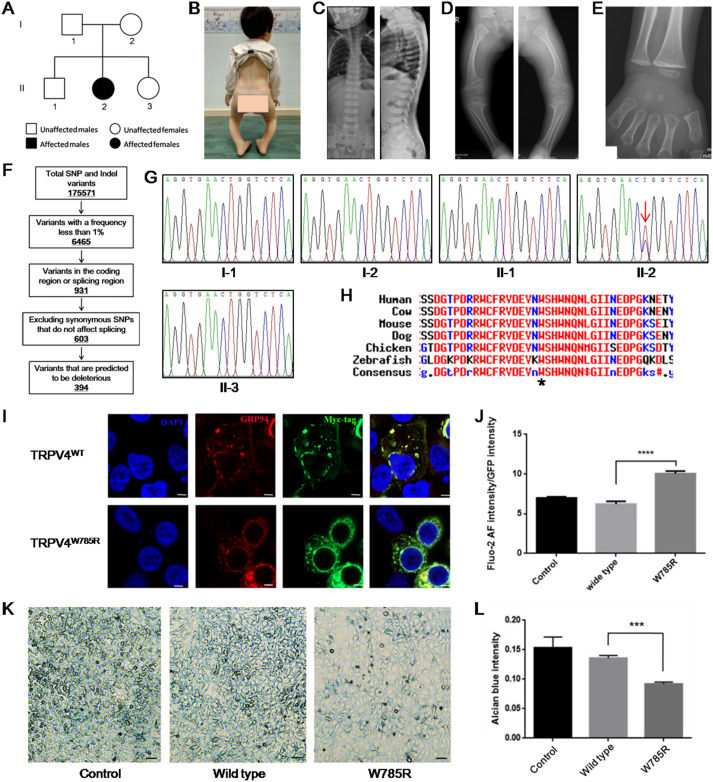
Novel de novo TRPV4 mutation identified in a Chinese family with metatropic dysplasia inhibits chondrogenic differentiation


Metatropic dysplasia (MD, MIM 156530) is a rare congenital bone dysplasia primarily characterized by severe platyspondyly with long and wide vertebral bodies and dumbbell deformity of the tubular bones. MD can be caused by heterozygous mutations in the gene encoding transient receptor potential vanilloid family member 4 (TRPV4). We identified a novel de novo mutation, c.2353 T > C, in the TRPV4 gene, in a Chinese family with mild MD. Expression of mutant TRPV4 in HEK293 cells resulted in higher basal intracellular Ca2+ concentrations and endoplasmic reticulum redistribution. In addition, mutant TRPV4 inhibited the chondrogenic differentiation of ATDC5 cells. Overall, we concluded that the novel mutation c.2353 T > C in the TRPV4 gene was the causative genetic lesion in this MD patient, whilst its pathogenicity might be partially attributed to the inhibition of chondrogenic differentiation.
